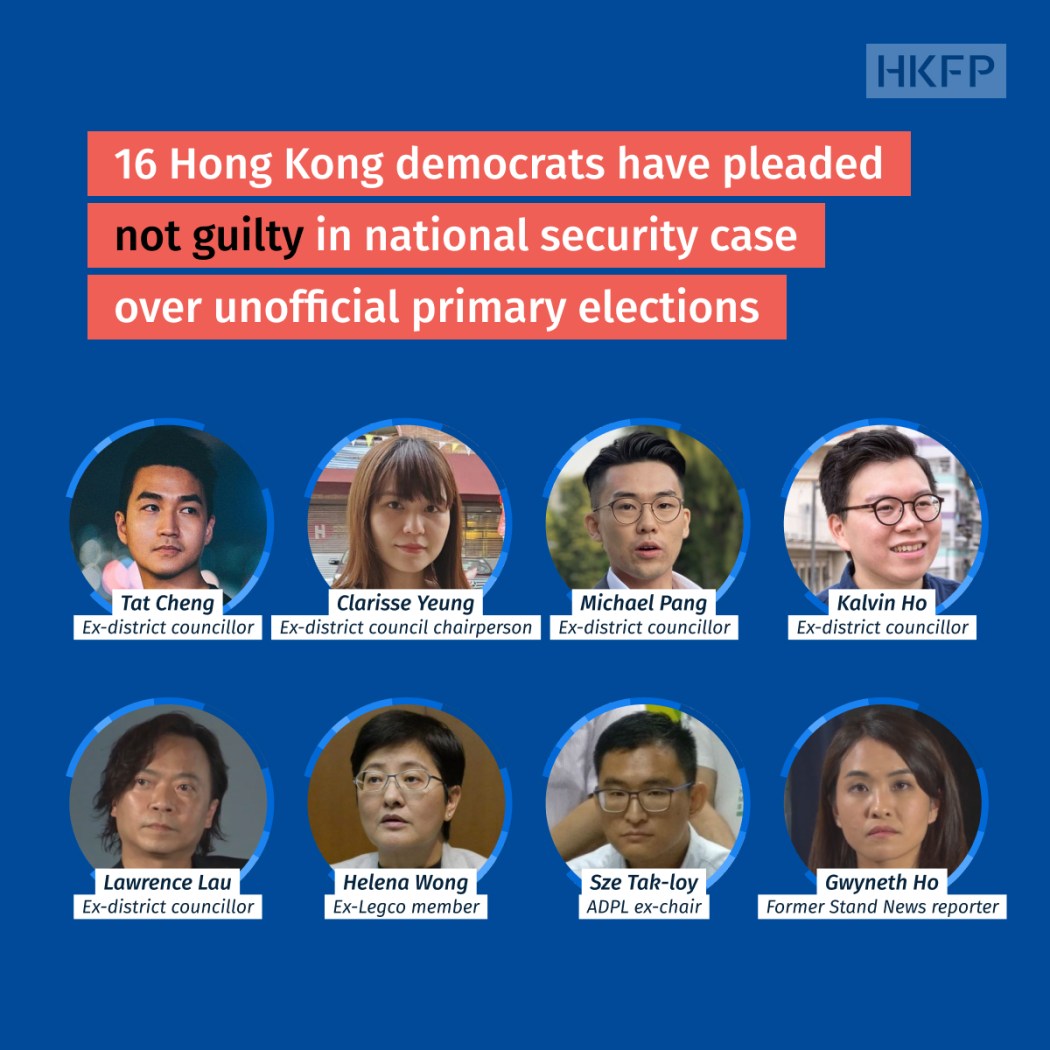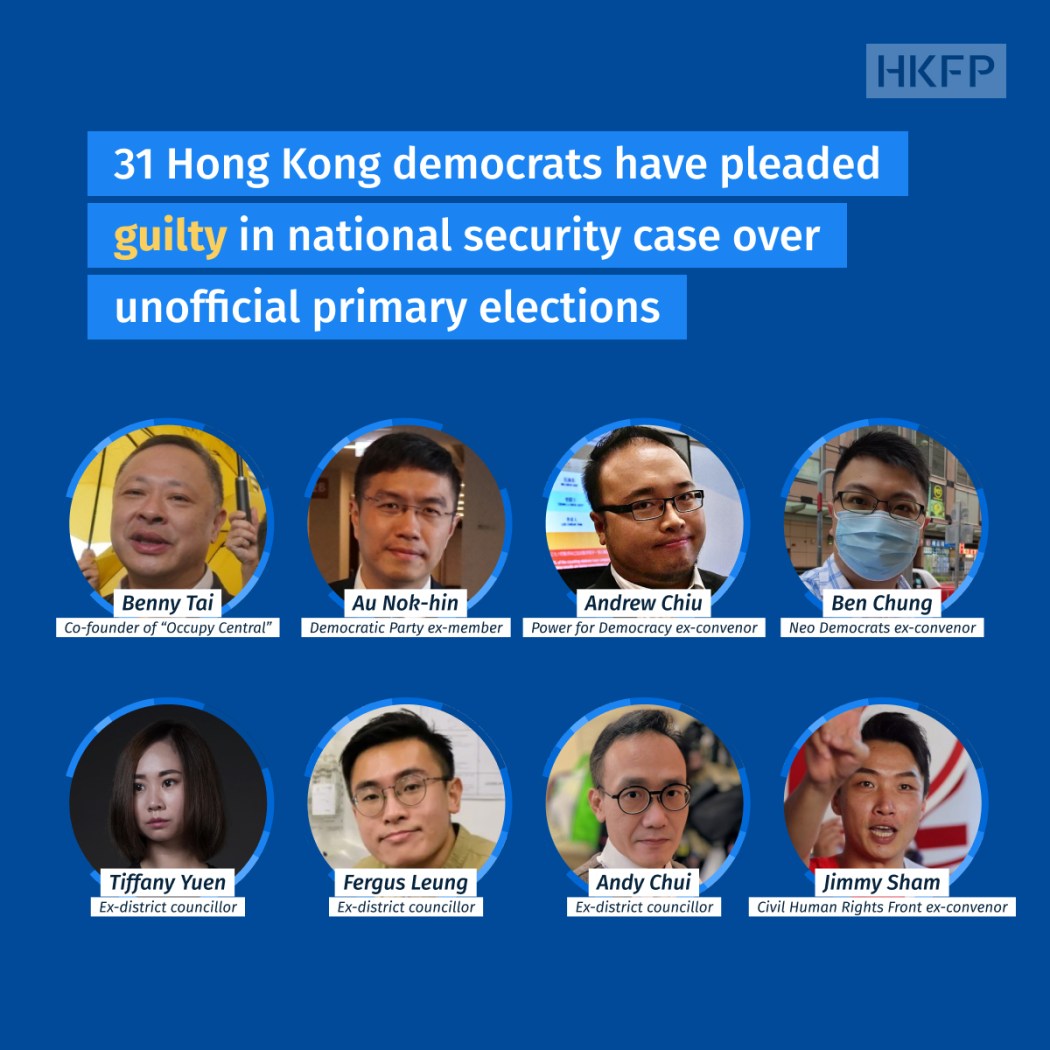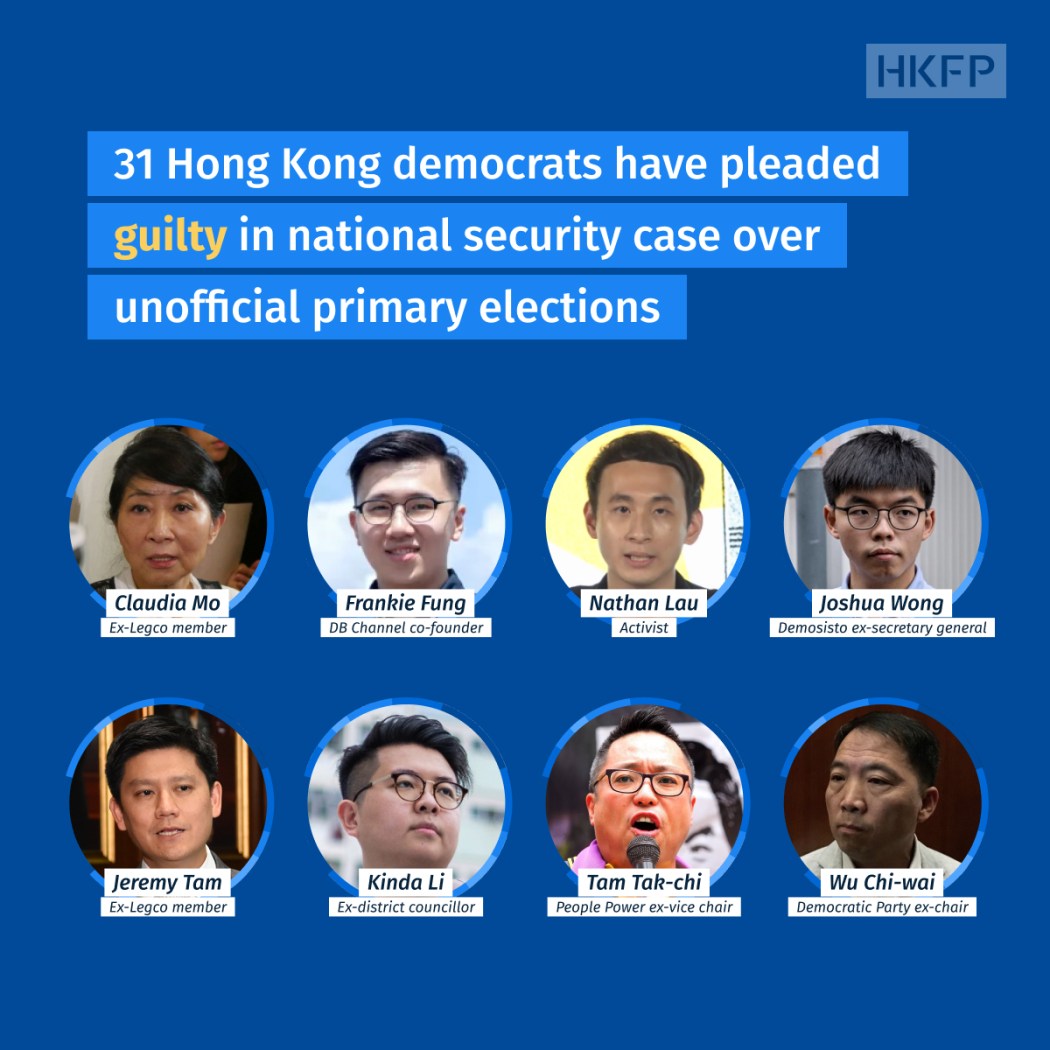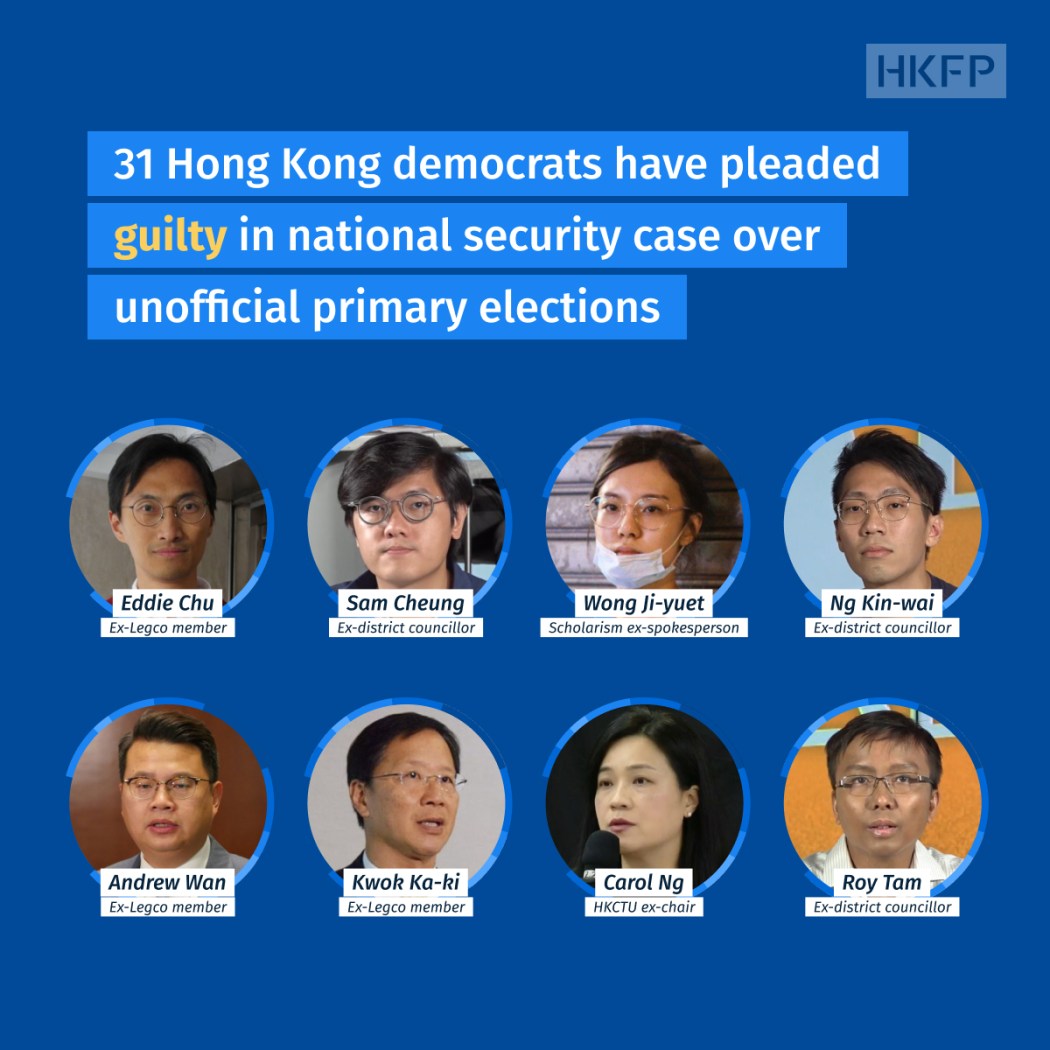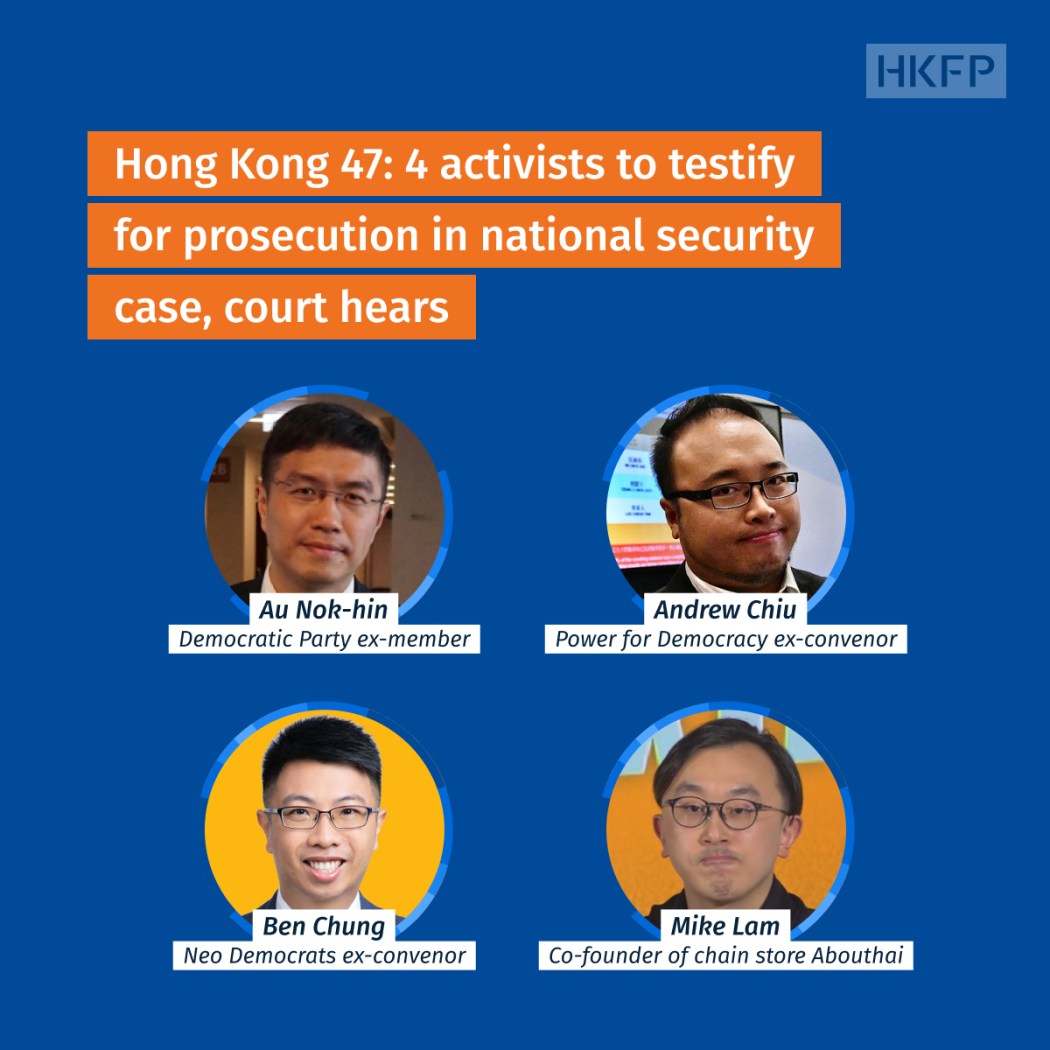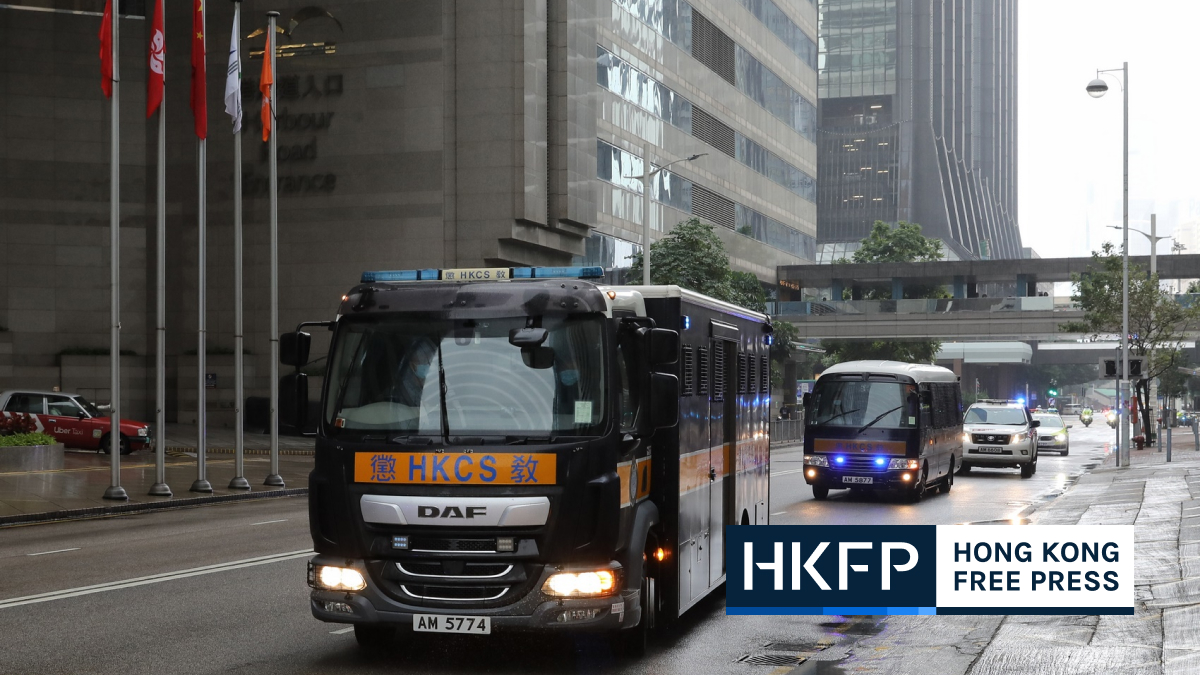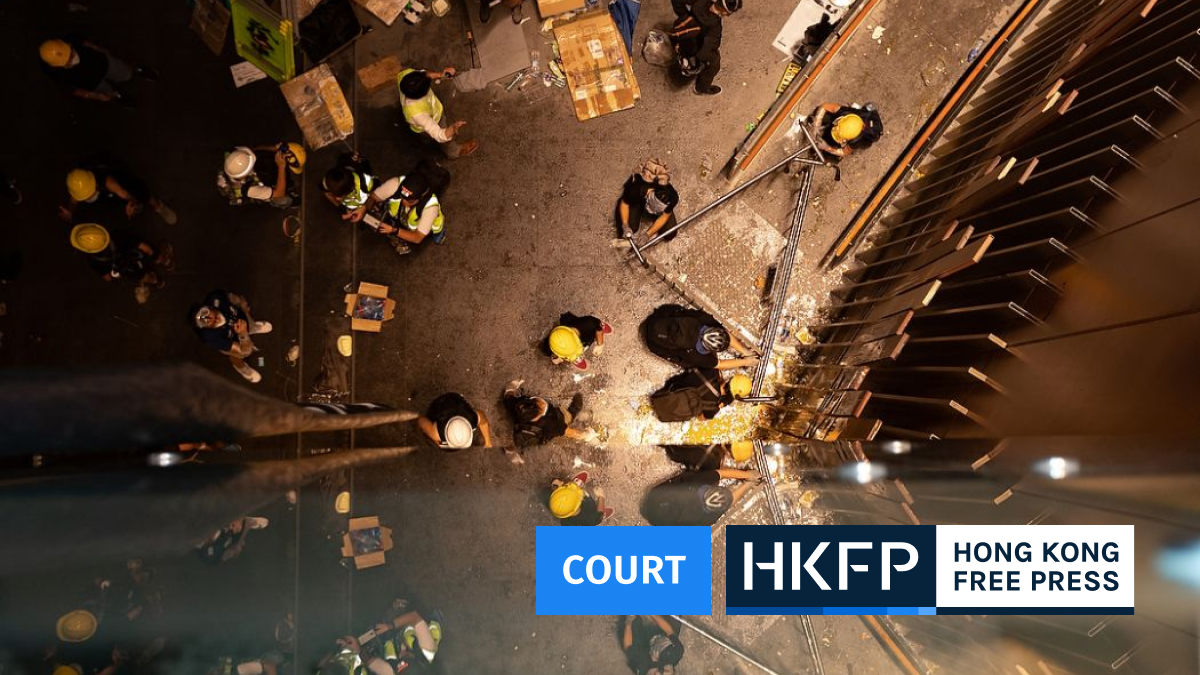Ex-lawmaker Au Nok-hin, who is testifying for the prosecution in Hong Kong’s landmark 47 democrats case has said he did not want to see “mutual destruction” happen in the city.
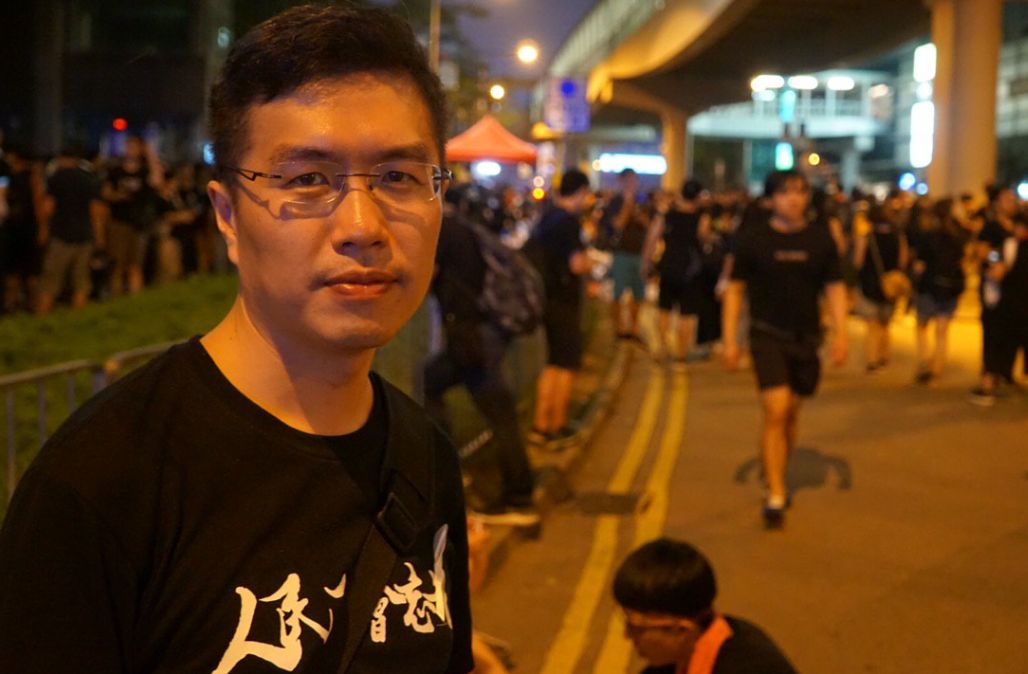
The term refers to what the prosecution have referred to as co-defendant Benny Tai’s “grand strategy of rebellion,” where lawmakers’ indiscriminate vetoing of the government budget would bring the city to a standstill and spark a bloody street rebellion.
Au’s comment came as the non-jury trial of 16 defendants – who pleaded not guilty to conspiring to commit subversion – entered its 25th day on Wednesday. The democrats, among them former lawmakers, district councillors and activists, were charged over their participation in an unofficial primary election held in July 2020.
The pro-democracy camp hoped the polls would help them coordinate votes and secure a controlling majority in the legislature. The Legislative Council election, scheduled for September 2020, was later postponed due to the Covid-19 outbreak.
Appearing before three handpicked national security judges at the West Kowloon Law Courts, Au – one of the organisers of the primaries – said he had planned to pursue his doctorate studies in Japan in October 2020 and quit politics.

“In other words, you would not see the ’10 steps of mutual destruction’ through?” asked judge Andrew Chan.
“I wouldn’t,” Au answered. “And I wouldn’t want to see that happen in Hong Kong.”
Au is the first prosecution witness to take the stand against his fellow defendants. Three other defendants – ex-district councillors Andrew Chiu and Ben Chung, and Mike Lam, the founder of retail chain AbouThai – will also act as accomplice witnesses and testify for the prosecution.
‘One of the hardest working’ lawmakers
Wednesday saw barrister David Ma, representing ex-lawmaker Raymond Chan, begin his cross examination of Au.
Upon his questioning, Au said he agreed that he regarded – and continued to regard – Chan as a personal friend, with whom he shared meals and played the mobile app Pokémon Go.

He added that Chan, known as Hong Kong’s first openly gay lawmaker and a vocal advocate of LGBT+ rights, was a “rational” and “friendly person.”
Au also said that Chan was one of the “hardest working members in the Legislative Council,” with even the legislature’s president Andrew Leung praising him as “the most diligent member in the [pro-democracy] camp.”
Asked by Ma if Au was aware that Chan often worked with government officials and the pro-establishment camp on issues relating to LGBT rights, Au said he knew: “The government has consulted him [on such issues] and he has also been in contact with Regina Ip,” Au said, referring to the chairperson of the pro-establishment New People’s Party.

Au also agreed with Ma that Chan was a supporter of a universal retirement scheme.
“Given your friendship with Raymond,” Chan said, “if the government implemented [a] universal retirement scheme, you expect he will vote [in support of the government budget]. Is it fair to say so?”
Before Au could answer, judge Johnny Chan said Au was not expected the answer the question without knowing “the content of the whole budget.”
Prosecutor Jonathan Man also raised opposition to Ma’s query, calling it “a very hard question.”
Chan was held in custody for over half a year ahead of the trial, and was released on bail in September 2021. Most of the 47 democrats were denied bail.
‘Primary movers’
The national security trial began in February, after most defendants had already spent almost two years in detention after being denied bail in March 2021. It is expected to last more than four months. The democrats face up to life in prison if convicted.

On Tuesday, Au admitted that he and former law professor Benny Tai were the “primary movers” of the polls at the centre of the national security trial.
But between the two, Tai “undoubtedly” took on a major role in areas such as public speaking in relation to the primary elections, he said.
Au was also asked on Tuesday about the division of labour between him and Tai: “I was responsible for attending the coordination meetings, contacting people from different [political] parties and communicating with them where necessary,” he said.
“And I was responsible for organising all of the election forums,” Au said, referring to a series of debates broadcast online in which candidates faced off in the lead up to the primaries.
Lee said it sounded like Au was in charge of the “execution” aspects. He then asked who was “the brain” behind the project.
“I think what’s less controversial is that [Tai] was responsible for a very large part,” Au said.

During Tuesday’s session, Tai was also cross-examined by barrister Erik Shum, who is representing defendants Lam Cheuk-ting and Helena Wong – both of whom were Democratic Party lawmakers.
Responding to Shum’s questions, Au said neither Lam nor Wong signed documents relating to vetoing the budget – a move that sought to paralyse the legislature. No Democratic Party members who ran as primary candidates signed any such documents, Au added.
Au also confirmed in court that two exhibits shown – Wong’s campaign poster and an attachment to Lam’s nomination form – did not mention anything about vetoing the budget.
He added that, as the primary election went on, he was in touch mostly with the “conservative candidates,” including those from the Democratic Party and the League of Social Democrats.

Au said he felt “guilty” that he could not “protect a diversity of voices.”
After Shum completed his cross examination of Au, he said I “wish you peace and good health.”
Judge Andrew Chan told Shum to “skip all those remarks in future.”
Support HKFP | Policies & Ethics | Error/typo? | Contact Us | Newsletter | Transparency & Annual Report | Apps
Help safeguard press freedom & keep HKFP free for all readers by supporting our team

latest national security stories
Support HKFP | Policies & Ethics | Error/typo? | Contact Us | Newsletter | Transparency & Annual Report | Apps
Help safeguard press freedom & keep HKFP free for all readers by supporting our team


